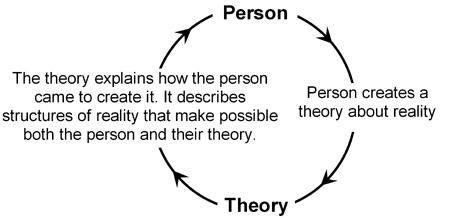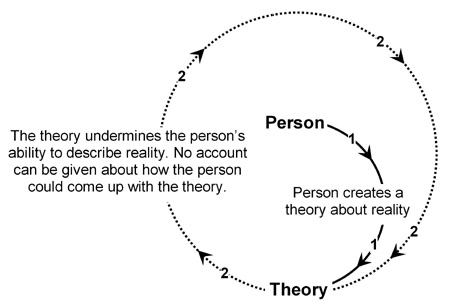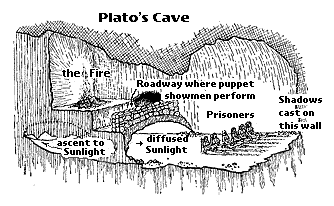E
eris
Guest
.
The circle is the basis for (creates and is) Reality ( capital R ). The circle holds everything together.
Any set of opposites, or any pair of anything, forms a circle, and in this way, the circle is found in everything.
For example, time is an entity, or a process, consisting of a movement, or an idea from now to then. Now and then are two 'time frames' which create a circle. Any X and Y create a circle.
Also, if everythings a circle, we can expect to succeed and fail one-half of the time - all of us. True and False also take on a new meaning (the opposite is always also true).
Everythings a circle because of one simple fact: the line is always the diameter of some circle.
Any two any things create a circle.
+++++++++++++++++++++++++++++++++++++++++++++++++++=
In Platos "theory of forms" he says that no one has ever seen a perfect circle, or a perfect straight line, yet everyone knows what they are.
The objects that we see, according to Plato, are not real, but literally mimic the real Forms. In the allegory of the cave the things we ordinarily perceive in the world are characterized as shadows of the real things, which we do not perceive directly or accuratly.
When we become aware of the shadows and illusions Circles become circles, and circles become Circles.
++++++++++++++++++++++++++++++++++++++++++++++++++
What is the point of this thread ?
I like circles.
You can make a smiley face out of them.

The circle is the basis for (creates and is) Reality ( capital R ). The circle holds everything together.
Any set of opposites, or any pair of anything, forms a circle, and in this way, the circle is found in everything.
For example, time is an entity, or a process, consisting of a movement, or an idea from now to then. Now and then are two 'time frames' which create a circle. Any X and Y create a circle.
Also, if everythings a circle, we can expect to succeed and fail one-half of the time - all of us. True and False also take on a new meaning (the opposite is always also true).
Everythings a circle because of one simple fact: the line is always the diameter of some circle.
Any two any things create a circle.
+++++++++++++++++++++++++++++++++++++++++++++++++++=
In Platos "theory of forms" he says that no one has ever seen a perfect circle, or a perfect straight line, yet everyone knows what they are.
The objects that we see, according to Plato, are not real, but literally mimic the real Forms. In the allegory of the cave the things we ordinarily perceive in the world are characterized as shadows of the real things, which we do not perceive directly or accuratly.
When we become aware of the shadows and illusions Circles become circles, and circles become Circles.
++++++++++++++++++++++++++++++++++++++++++++++++++
What is the point of this thread ?
I like circles.
You can make a smiley face out of them.

















































